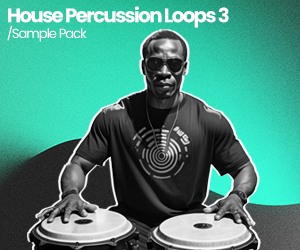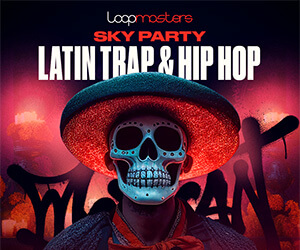It's no secret that the internet has revolutionized the world, and the music business perhaps more than most others. Producers from decades ago couldn't make it without a record label, but these days, what you need to start a record label is nothing when compared to the past. In this article, we'll discuss how to start a record label – whether you're doing it with some funding or with no money at all – and how to create a successful independent project that you can be proud of.
So what do you need to start a record label? Here are 10 things to consider…
1. Choose The Music
This may seem obvious, but choosing the music you're going to sell is a pretty fundamental decision. Once they know you're starting a music label, artists everywhere will want to get in on the action, but you can't help everybody – being a successful label is more about curation than anything else. It’s often better for new labels to have a relatively narrow focus in what genres they are intending to sell.
This narrow focus and specialism is key, and it also corresponds to formats. Take some time and really think about whether you are going to sell physical items or just be a download-only label. Be realistic about physical products – they cost a lot to produce and you don’t want to be left with rooms full of CDs and Vinyls that you’re struggling to sell. Listen to your friends and people around you, because getting the product right is the key to success.
2. Choose The Name
The next step is to create an identity for your record label. Research your competitors and how they are branded. Creating the right kind of identity for your label is incredibly important, given that in the international digital age this will be your shop window. Put together a list of names and test them out with friends, remember to listen and not get to caught up one idea. If you want a website then it will make sense to include your record label in it, so register your chosen name and make sure it’s available. You can do this via the National Business Register or if you’re setting up a Limited Company, you can do it online via Companies House.
3. Establish A Brand Look
Similar to the importance of your record label name, you will also need to produce logos and a brand identity. Keep it simple and easy to read – the likelihood is that your logo will change in size to fit in on banners and website posts. This is the first thing people will see, and it will be recognised for years if you manage to start a successful independent record label.
Take some time over your logo – If you want to be taken seriously, your brand needs to look professional, and while it's entirely possible to design it yourself, the touch of a professional is invaluable. Consider hiring a freelance designer on Fiverr at least, but make sure you communicate with them first about your aspirations for the brand and choose a designer who seems to be on the same wavelength.
4. Build A Website/Register The Name
How much does it cost to start a record label? One very likely initial cost is a website. Websites give you a base for your customers to go and find out everything they need to know about you, your releases, gigs, videos, and most importantly a shop to sell your music. While it's possible to use a free website builder to create something, the professional appearance given by a .com address over a longer URL can be important for many. Sites like Wordpress can deal with both at the same time, but do your homework beofre you choose a web provider – this is a service you'll depend on for years.
Alongside your website, make sure you set up social media channels, and make sure the channels and website link to each other. Any of these channels could be the 'way in' for a customer or fan to engage with your label – whether that means buying something or finding information about an event, so make sure they head in the right direction.
5. Get Your Tracks Sounding Good (Mastered)
This is the product you’re going to be selling, so it's important to get your tracks sounding professional. There are two things that can let down a track: one is the arrangement and the other is the mix. Tweaking either one of these things could make a difference between a hit and a flop. Compare your tracks against your competitors on different speakers and playback devices, including inside a car. Friends will tend to like anything you do, so really try and get some constructive criticism out of them – you don’t want your label to be known as an outlet for poorly mixed tracks.
Nowadays, a lot of bedroom producers aren’t getting their tracks mastered properly, and that's not a good look for a record label. Mastering can cost money but will always be worth it for those who want to look professional and sound professional. Forget using your mate with a cracked copy of Logic and mastering plugins that crash their computer every hour! Invest some money and get your tracks mastered to a professional standard. This is especially important if you are thinking of pressing to vinyl.

6. Promotion
There used to be no way to start a record label without money, but these days promotion requires only time and an internet connection. It’s time to get some interest building around your new tracks, logo and website. Here's where those Facebook, Soundcloud, Youtube, Instagram and Twitter accounts come in. Try and be active on social media, but don’t swamp your audience with pointless personal information, but don’t come across to corporate and lifeless online,
At the same time, try and reply to everyone that sends messages, as personal touches go a long way. Start building a database of email addresses and start a newsletter with updates and free giveaways – people love free stuff!
7. Know The Contract
By now you’ve done lots of hard work, so why not start making some money off your artists? If your label is releasing music made by other artists, then make sure your agreement with them is fair and binding. This doesn’t always mean bringing in high-powered lawyers – so long as the terms you've agreed are clearly set out in a document, printed and signed by you and the artist in question, then you’re up and running. It’s up to you to negotiate the terms and agreements – just remember, everything is better in writing, so if something were to happen you have a legally binding letter to fall back on.
8. Get Your Artists Playing Live
Although the amount of money spent on buying and streaming music is increasing, the amount that we go out and watch our favourite artists has shot right up. Playing live is the most effective form of publicity and will lead to direct to selling units. Be sure to plug your site and even get a friend to set up a stall with your merchandise, CDs, T-Shirts etc. This is a great way of getting your brand out there.

9. Collect Royalties
Collecting royalties takes time, and there is often a time lag of at least six months, so you need to consider this when planning releases. Sign up with the PRS and MCPS and research into what they offer in form of registering your tracks and collecting publishing money.
Also remember as a label owner you are in control of sampling issues, think twice before releasing that track with Nina Simone’s vocal on! If in doubt, check out this site on the problems and solutions behind sampling
10. Accounts/Income Tax
When the money starts rolling in and your tracks are going platinum, you’ll need to pay a percentage as Income Tax. That’s the law, so be sure you have every pound and penny accounted for. Set up a spreadsheet with income and expenditure columns, as expenses which relate to the running of your business can be claimed back against tax – for example, you don’t pay tax on business phone calls, driving artist to gigs, running the website and so on. If your label is releasing other people's music, you’ll also need to pay them, this of course is subject to your agreement.










